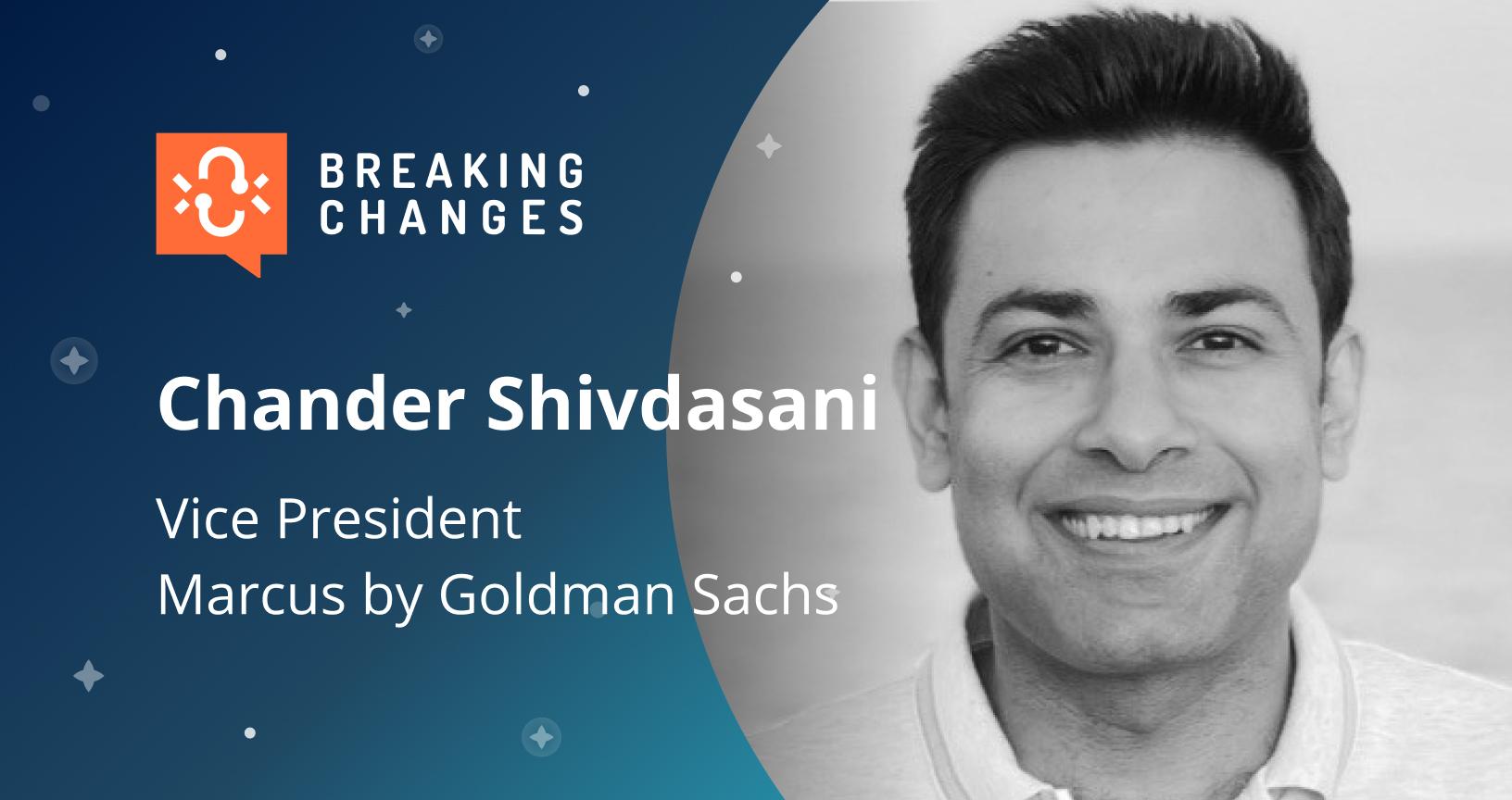“Breaking Changes” with Chander Shivdasani: API-first Is contract-first at Goldman Sachs
The financial sector is the number one industry being impacted by APIs today. So, I was pleased to sit down with Chander Shivdasani, vice president at Marcus by Goldman Sachs, for an episode of Breaking Changes called “The Smart Benefits of API-First.” While pure tech industry APIs capture our attention about what is possible through being API-first, I find that meaningful API movement in the financial sector creates a significant opportunity for reaching out to the masses when it comes to understanding the relevance of APIs in our world.
Being API-first, or as Chander calls it, being contract-first, provides Goldman Sachs with the ability to innovate in new areas while also delivering the stability and predictability that financial institutions prefer—finding the balance they need to operate in the 21st century. Being contract-first allows massive enterprises like Goldman Sachs to properly leverage their legacy infrastructure, while also enabling them to be agile enough to develop new types of businesses, reduce friction, and power quicker turnarounds when onboarding partners. This API-first approach to doing business brings the agility and nimbleness that Goldman Sachs needs to remain competitive, but it also provides them with the predictability that their risk-averse financial leadership demands.
A contract-first approach helps Goldman Sachs establish a common definition of what the API lifecycle means across teams, providing a predictable way for teams to evolve their existing software development lifecycle into a modern API lifecycle. Contracts ensure that whether the API operations they describe are meant for delivering new infrastructure or moderating existing legacy systems, teams are speaking the same language. This contract-defined API-first reality lets both their business and technical stakeholders be more involved throughout the lifecycle, which allows the company to take a federated approach to delivering and governing APIs. They can continue to manage dependencies and standardize their approach through design reviews and regular training for all teams who are involved in delivering the next generation of API infrastructure.
I was pleased to learn more about the evolution happening over at Goldman Sachs. Like other enterprise organizations, there is still a lot of work to be done, and they aren’t without their challenges. However, Goldman Sachs’ investment in a contract-first approach to their API-first transformation allows them to open up new opportunities across an ever-shifting landscape that is increasingly fraught with competitive and regulatory challenges. Their approach to balancing the legacy and next-generation infrastructure they need, not only to do business, but to continue redefining the way we bank, invest, and put money to work in our personal and professional lives, is very compelling. Thanks to Chander for stopping by and sharing more about their journey, and if fintech is your game, I strongly recommend tuning into this episode if you want to learn more about how API-first is shifting the financial landscape.
You can tune in and subscribe to the Breaking Changes podcast on Spotify, Apple Podcasts, Google Podcasts, and Amazon Music, or watch it on YouTube.

What do you think about this topic? Tell us in a comment below.